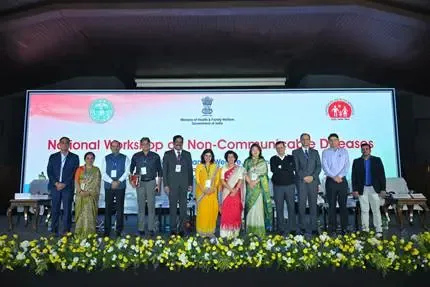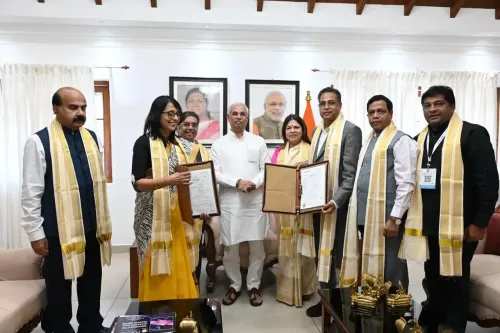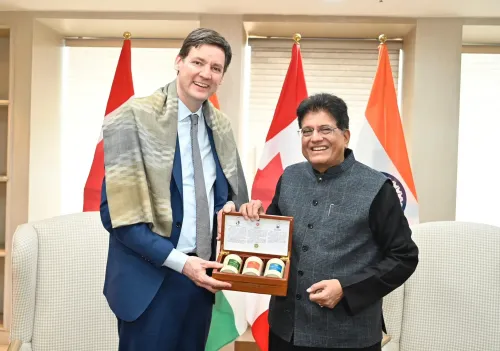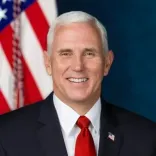Union Health Ministry Emphasizes Collaborative Efforts and Research to Combat NCDs

New Delhi, Jan 10 (NationPress) Collaboration across sectors and improved research initiatives are essential in confronting the escalating challenge posed by Non-Communicable Diseases (NCDs), including diabetes, hypertension, and obesity, as highlighted by the Union Health Ministry on Friday.
NCDs represent over 66 percent of total fatalities throughout the nation. The impact of NCDs, which encompasses cardiovascular conditions, diabetes, chronic respiratory illnesses, and cancers, has emerged as a major public health concern, particularly for those aged 30 and above.
“There is a pressing need for collaborative efforts, advancements in research, and innovative methodologies to tackle the increasing burden of NCDs,” stated Punya Salila Srivastava, Union Health Secretary.
This statement was made during a two-day national workshop on NCDs, organized by the Union Health Ministry in partnership with the Government of Telangana from January 8-9.
The workshop convened key stakeholders, including Principal Secretaries (Health), the Mission Director of the National Health Mission, and other senior officials from various States and Union Territories, alongside health professionals and policymakers from across the nation, focusing on enhancing strategies for the prevention, screening, management, and treatment of NCDs.
“This national workshop represented a crucial advancement towards fulfilling the government’s vision of a ‘Healthy India’, emphasizing universal access to quality healthcare services and the reduction of premature deaths due to NCDs,” noted Srivastava.
She highlighted that the workshop would enable the Health Ministry “to outline strategic priorities while presenting proposals to the 16th Finance Commission of India aimed at strengthening the healthcare system, including the prevention and management of NCDs.”
The conference included extensive discussions, field visits, and knowledge-sharing sessions that addressed various aspects of major NCDs, such as diabetes, hypertension, chronic kidney disease (CKD), chronic respiratory disease (CRD), non-alcoholic fatty liver disease (NAFLD), stroke, and cancer.
A significant focus was placed on community-based interventions, with sessions highlighting initiatives like Fit India and Eat Right India. Furthermore, the workshop explored state-specific strategies to tackle hypertension and cancer, alongside examining methods to close gaps in cancer care—from screening through to follow-up.










